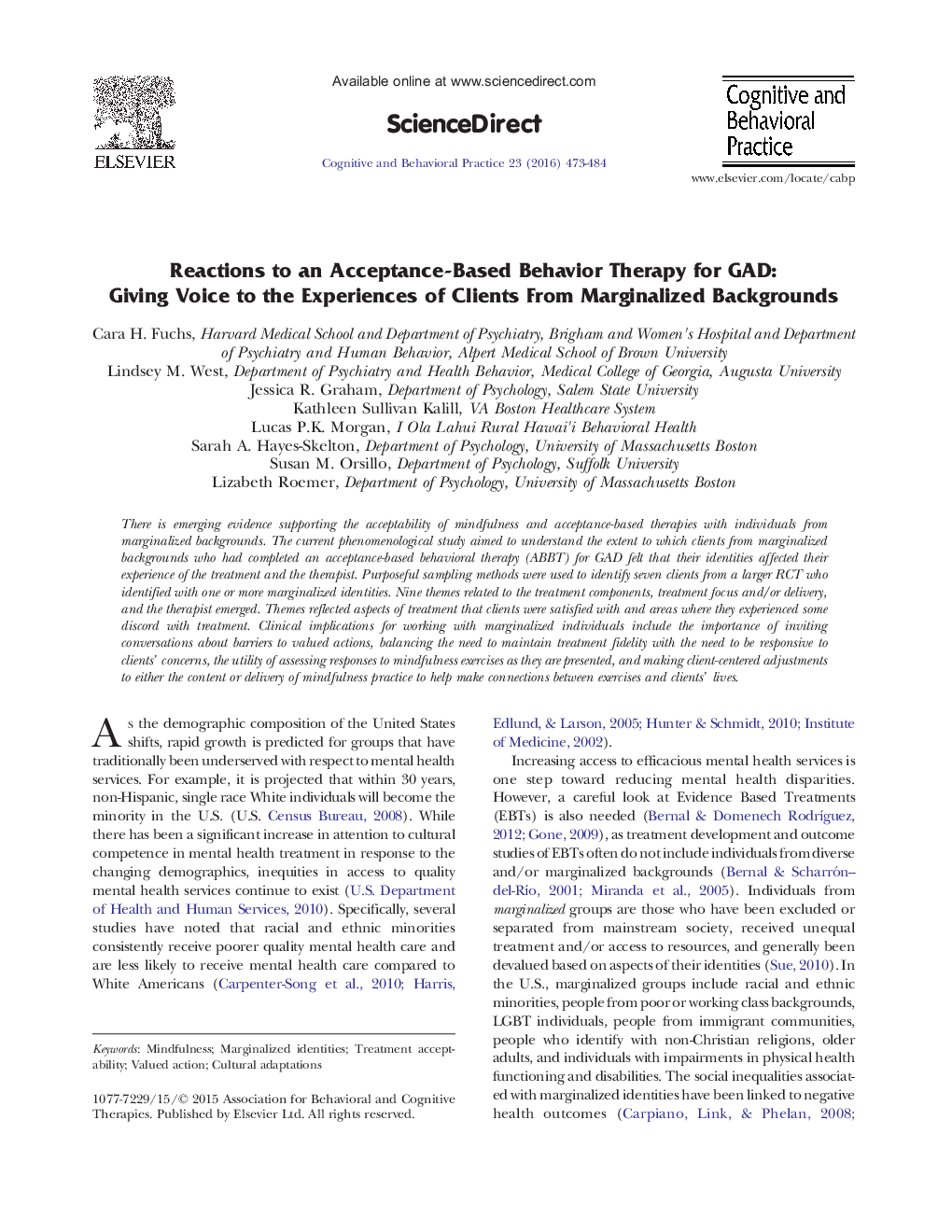| Article ID | Journal | Published Year | Pages | File Type |
|---|---|---|---|---|
| 5038620 | Cognitive and Behavioral Practice | 2016 | 12 Pages |
â¢A qualitative study with clients from marginalized backgrounds is presented.â¢The acceptability of an acceptance-based behavioral therapy for GAD is explored.â¢The treatment is generally described as helpful and acceptable.â¢Themes reflected the extent with which clients felt satisfied with specific treatment componentsâ¢Clinical implications for working with marginalized individuals and possible treatment adaptations are discussed.
There is emerging evidence supporting the acceptability of mindfulness and acceptance-based therapies with individuals from marginalized backgrounds. The current phenomenological study aimed to understand the extent to which clients from marginalized backgrounds who had completed an acceptance-based behavioral therapy (ABBT) for GAD felt that their identities affected their experience of the treatment and the therapist. Purposeful sampling methods were used to identify seven clients from a larger RCT who identified with one or more marginalized identities. Nine themes related to the treatment components, treatment focus and/or delivery, and the therapist emerged. Themes reflected aspects of treatment that clients were satisfied with and areas where they experienced some discord with treatment. Clinical implications for working with marginalized individuals include the importance of inviting conversations about barriers to valued actions, balancing the need to maintain treatment fidelity with the need to be responsive to clients' concerns, the utility of assessing responses to mindfulness exercises as they are presented, and making client-centered adjustments to either the content or delivery of mindfulness practice to help make connections between exercises and clients' lives.
